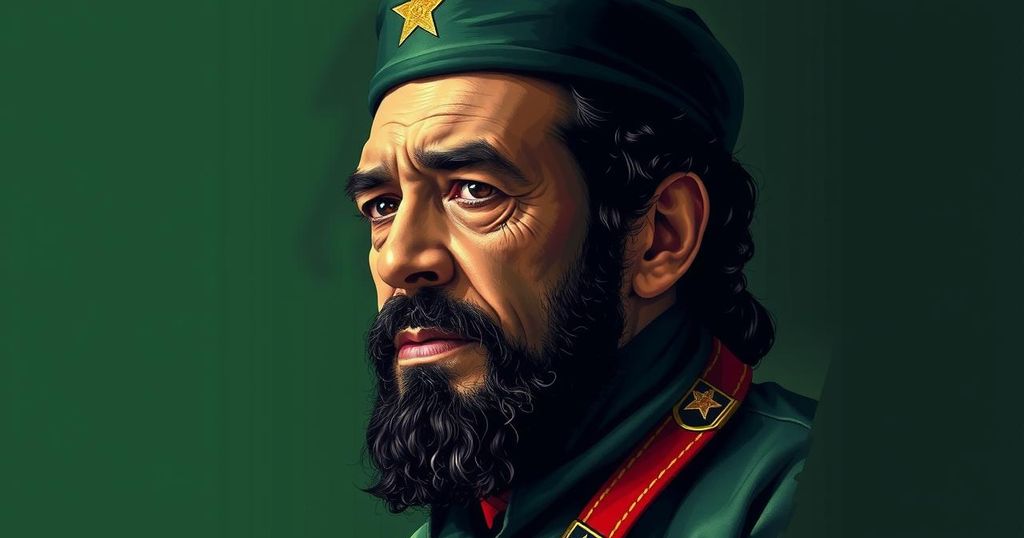The Life and Legacy of Muammar al-Qaddafi

Muammar al-Qaddafi, ruler of Libya from 1969 until his death in 2011, rose to power through a military coup, implementing significant reforms rooted in Islamic socialism. His regime faced widespread condemnation for its violent suppression of dissent, particularly during the 2011 uprisings. Ultimately, he was killed during a rebellion that ended his long-standing control over the country.
Muammar al-Qaddafi, born in 1942 near Sirte, Libya, served as the de facto ruler of Libya from 1969 until his demise in 2011. His rise to power initiated with a successful military coup that deposed King Idris I on September 1, 1969. Following the coup, Qaddafi assumed the roles of Commander in Chief of the armed forces and chairman of the Revolutionary Command Council. He initiated a series of substantial national reforms, including the removal of foreign military bases and the nationalization of Libya’s oil industry. A polarizing figure, Qaddafi adhered to Islamic socialism, which he articulated in his ideological manifesto known as “The Green Book.” His regime’s foreign policy was characterized by interventions in regional conflicts and the support of various revolutionary movements worldwide. Qaddafi’s controversial tenure was marred by international incidents, notably the Lockerbie bombing in 1988, which led to significant sanctions from the United Nations and unrest with the United States. However, in the 2000s, he sought rehabilitation on the global stage, partially succeeding after denouncing Libya’s unconventional weapons program. The political landscape in Libya shifted dramatically in early 2011 following uprisings in neighboring Tunisia and Egypt, leading to widespread protests against Qaddafi’s rule. The regime’s violent response escalated the crisis, prompting the United Nations Security Council to impose sanctions and ultimately authorize military intervention to protect civilians. By August 2011, rebel forces had overtaken Tripoli, signaling the collapse of Qaddafi’s control. He was ultimately killed on October 20, 2011, in his hometown of Sirte, marking the end of his protracted and contentious regime.
Muammar al-Qaddafi was a prominent figure in recent history, whose leadership style and ideologies significantly impacted Libya and the Arab world. His youth, rooted in a Bedouin background, propelled him towards military pursuits, culminating in his coup against King Idris I. His governing style, entangled with ambitious social and economic reforms, aimed to establish a unique model of governance based on Islamic socialism. However, his erratic international behavior and associations led to strained relations with the West. His repressive approach to dissent culminated in the violent suppression of popular uprisings in 2011, which ultimately led to his downfall and represents a notable episode in the narrative of the Arab Spring.
The biography of Muammar al-Qaddafi illustrates the trajectory of a leader whose ambitions to transform Libya through revolutionary principles met with both domestic acclaim and international condemnation. His protracted rule, marked by ideological zeal, regional conflicts, and violent suppression of dissent, was ultimately challenged by the waves of the Arab Spring. Qaddafi’s death in 2011 not only shocked the region but also illuminated the complexities of his impact on global politics and the persistent quest for governance based on personal ideologies. His legacy remains a contentious topic of discussion in contemporary political analysis.
Original Source: www.britannica.com








